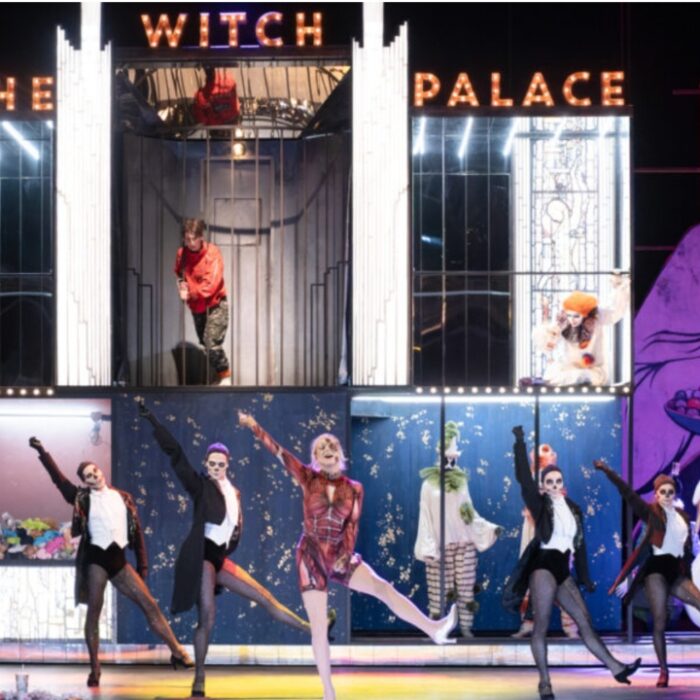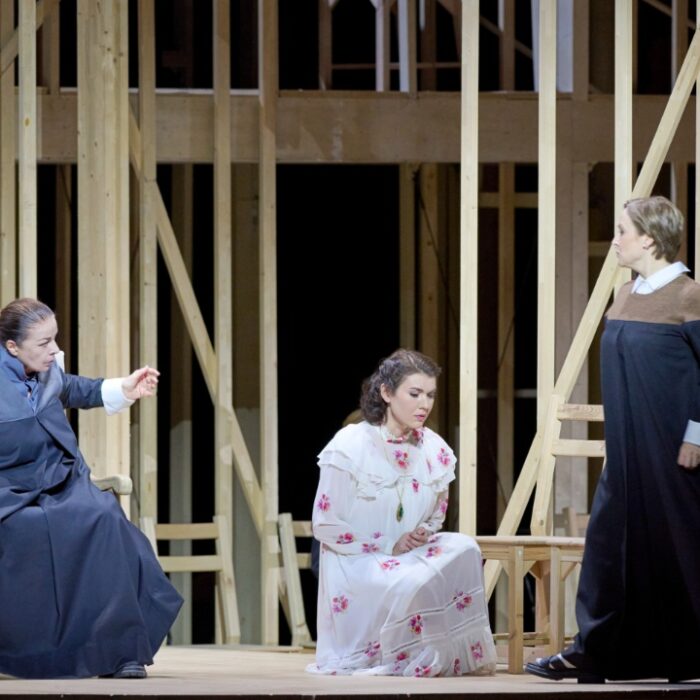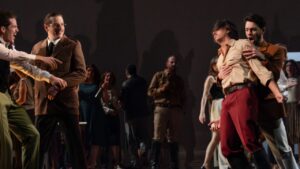
Opéra national du Rhin in Strasbourg 2025-26 Review: Otello
By Andréas Rey(Photo: © Klara Beck)
From October 29 to November 9, the Strasbourg Opera will be performing Verdi’s “Otello.” As always with the Strasbourg Opera, the Filature in Mulhouse will be staging this production as well on, November 16 and 18.
The staging has been given to the director Ted Huffman, who employs a highly effective minimalist approach, focusing the drama on the characters. Master lighting designer Bertrand Couderc makes particular use of lighting, with flashes for the initial storm, an almost cold light for the group scenes, and shadow work for the duets, notably between Iago and Roderigo, and a floor shining like a mirror, indicating the port, the reception room, and the living room of Otello’s house. This stark dryness underscores the psychology in this opera. The other elements of the set, such as the chairs and reception tables, and the costumes place the action in the 20th century, but without specifying the exact period. Fortunately, the acting is solid enough for the drama to unfold naturally.
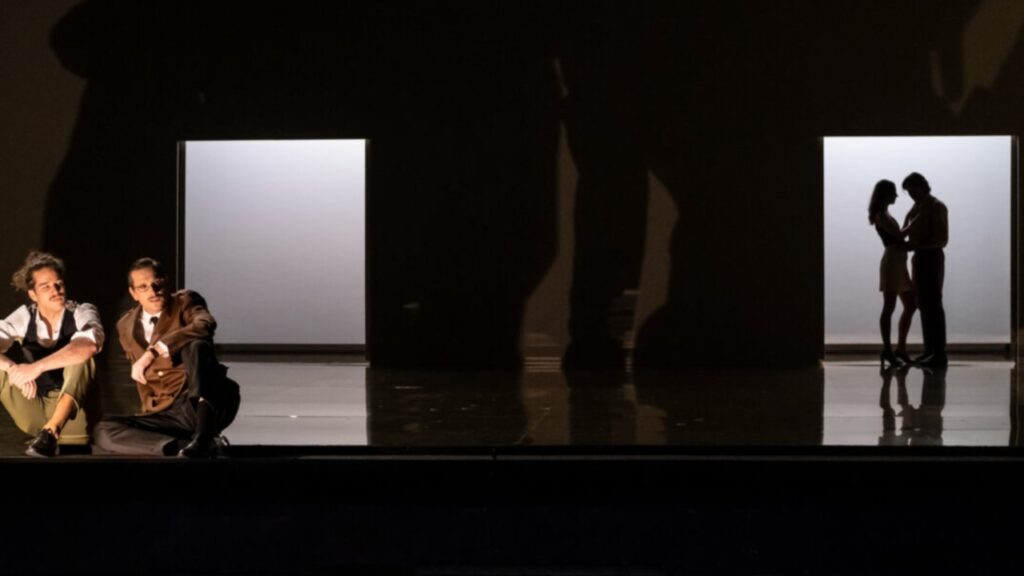
(Photo: © Klara Beck)
Musical Highlights
The most interesting aspect of this production is the conducting by Speranza Scappucci. Admittedly, her brass section, the most difficult section in Verdi, still sounds very much like that of the fanfare, but the strings of the Strasbourg Philharmonic Orchestra remain fluid, almost silky and expressive under her baton. Equally narrative and lyrical, they seem to herald Puccini’s orchestra in “Tosca” or “La Bohème.” Also noteworthy is the nostalgic, intimate and poignant cello before the duets between Otello and Desdemona. Her conducting is moving towards that of Rafael Kubelík and Italian conductors who do not simply provide accompaniment with the orchestra, but make it a spectator whose psyche transmits the action.
Unfortunately, the vocal range of the male voices lacks brilliance. The tertiary characters, such as Lodovico, sung by bass Jasurbek Khaydarov, Rodrigo, sung by tenor Massimo Frigato, and Cassio, sung by tenor Joel Prieto, lack sparkle and individuality. Bass Daniel Miroslaw struggled with a cold on October 31, making his singing sound very close to speech, as in the party scene in Act one, and was unable to give his “Vanne; la tua meta già vedo,” a demonic tune. However, tenor Mikheil Sheshaberidze as Otello was most disappointing in this production. He was unable to truly move the audience vocally and mostly relied on his acting to embody the Moor. Otello is a vocally difficult role, given the richness of his nuances, emotions, and psychology. Neither his “Tu? Indietro! fuggi!” nor his “Ah! Mille vite gli donasse Iddio!” were truly moving. His duets with Desdemona further highlighted his lack of expression.
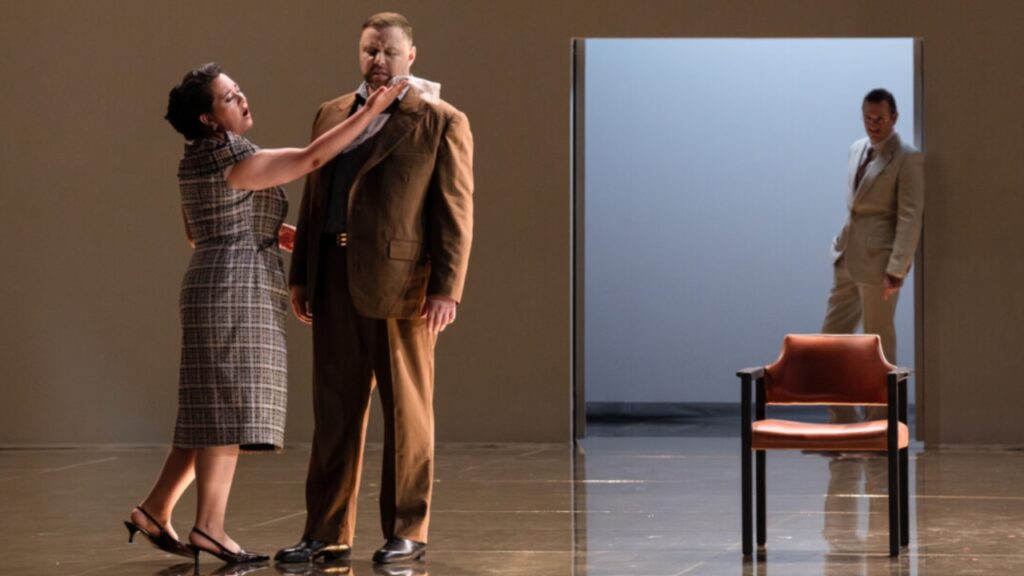
(Photo: © Klara Beck)
They also point out the slightly dry high notes of soprano Adriana González as Desdemona. She spent almost the entire opera trying to break free from this suffocating snow, but in her duet with Emilia, with the “Willow Song,” she managed to reach that inner emotion, difficult to contain, which only bursts out in desperate flashes. This was a great joy. Mezzo-soprano Brigitta Listra as Emilia, who would benefit from being more rebellious towards Iago, remained a little too reserved, despite having a firm timbre capable of supporting her.
It is also regrettable that the choir was so thunderous in the tutti, which detracted from the musicality of the orchestra. They were more musical in the quieter moments.
This was an interesting production in terms of staging, acting, and orchestra.
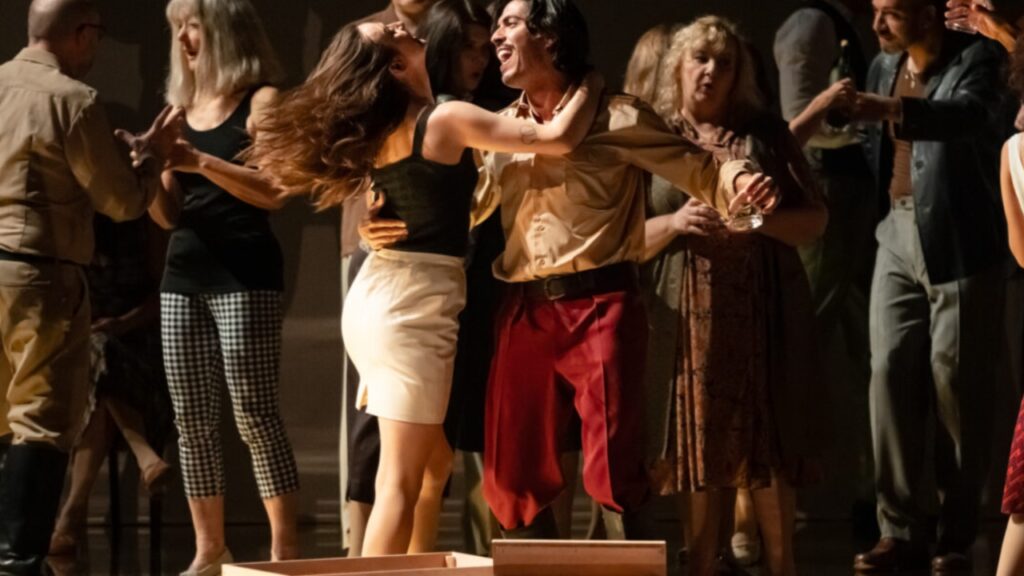
(Photo: © Klara Beck)

